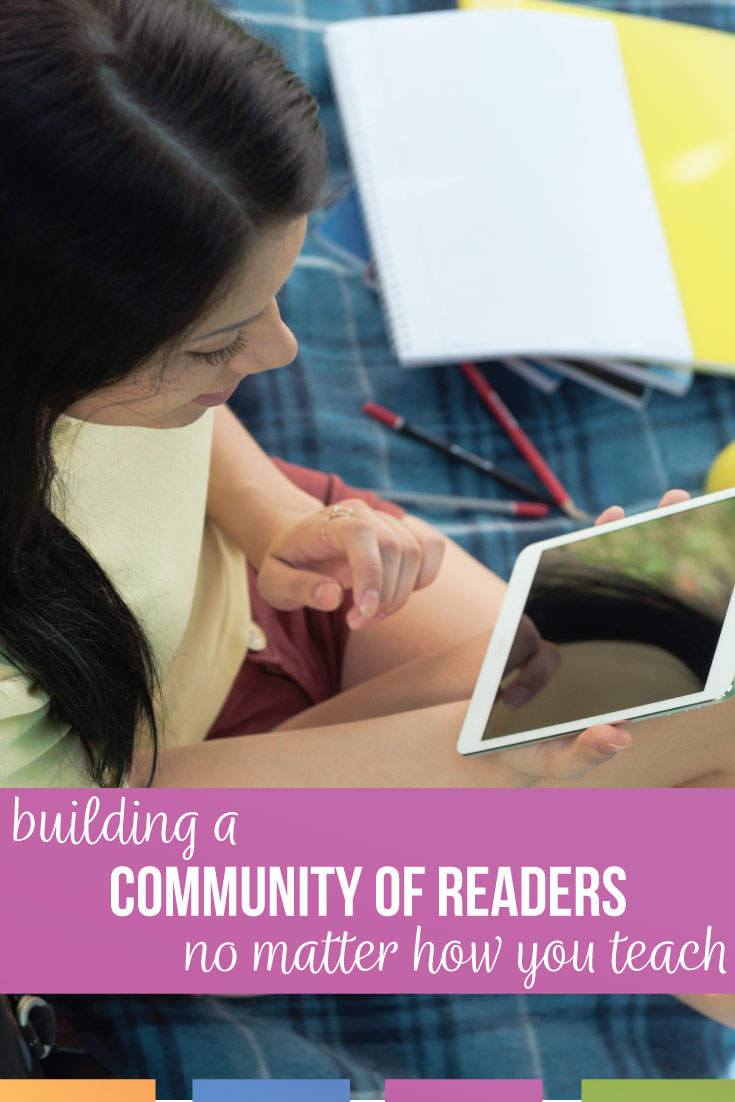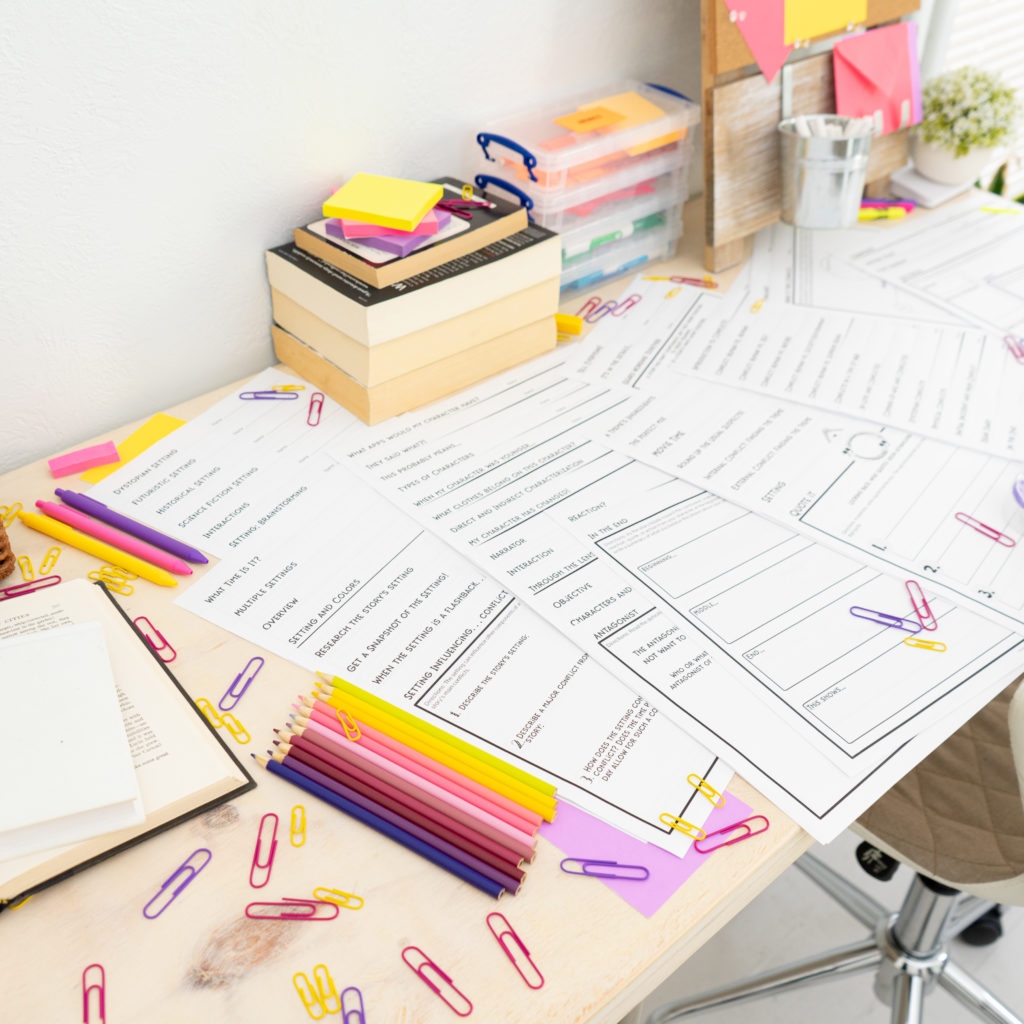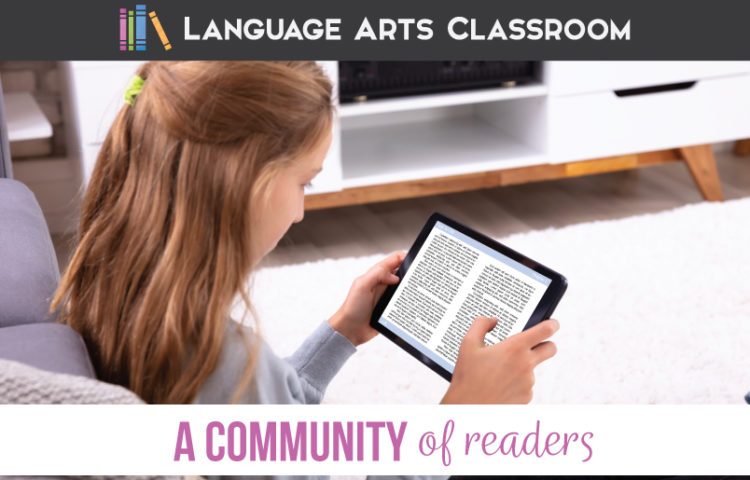Building a community of readers should be an intentional act, in the classroom or online.
I first noticed Kara on Instagram. She posted about book talks, and we conversed about building a community of readers. Why?
Well, a community of readers not only engages students in the rest of content, but it also helps in other areas of education. Classroom management and student relationships improve with students who enjoy reading. Your entire classroom community will improve!
Long-time blog readers know that I love First Chapter Friday and tout its benefits. I advertise the book a bit, but Kara thoroughly sells her books, and I had to learn more.
Luckily for us, she obliged to a COVID-friendly interview. Below are my questions and her answers. She has great insight into building a community of readers. Enjoy!

The 2020-2021 school year is unprecedented. We teachers don’t really have prior experience for HOW to teach through a pandemic. These past few years, teachers have established reading routines and built a culture of literacy. How are teachers going to continue that movement this year?
As we consider building a community of readers this year, I’d invite every teacher to first, take a deep breath, and let go (a little bit) of the control you might typically like to have over your students’ reading experiences. If you are online, especially, I’m speaking to you.
I truly feel that this year, we need to zoom out and think about the big picture. I’d encourage you to keep these two goals in mind as you plan an independent reading system for your students. 1. Help students find joy in the power of a good story. 2. Get students reading more.
In order to achieve these goals, even without a classroom library at your disposal, I have a few suggestions. This year may be the perfect opportunity to spend more time doing read-alouds! There are so many engaging and rigorous titles that will not only help build your classroom community, but also get students thinking critically and enjoying books.
I’d also highly suggest getting your students signed up for a public library card. It’s very simple to do right now, because most public libraries have made applications a quick online process and email you a library card number. You can also sign up for a public library card in the town you teach by using your school address to complete the application. Once students have a library card number, instruct them to download the app Hoopla on their device (or simply use the webpage) so they can browse ebooks and audiobooks for free! In fact, you can even browse for great titles ahead of time and recommend them to students to make the process that much easier.
My final suggestion is to never stop book-talking and sharing what you’re reading with students, even if you can’t physically hand the titles over right now. There will be students who will go to great lengths to get their hands on the books you recommend. And for everyone else, it is so critical to create a community that celebrates and values reading. In fact, it may be more important now than ever. Demonstrate that you believe reading is important by making time to talk about it–formally or informally–every week.

I know you use book talks. Do you have a formula that will help teachers cut down on prep time in creating them?
Book talks completely changed my life as a teacher. As someone who worked with primarily reluctant and struggling readers, it was a challenge to foster a love of reading and a community of students who valued books. But when I began book-talking (a routine I dubbed Book-Talk-Tuesday), titles started to fly off my shelves, there were waitlists to check out novels, and students begged me to book-talk “just one more title.”
Book talks are essentially mini trailers that advertise novels, and every book talk I conduct contains the following components: First, I show students the cover of the novel, either on a slideshow or in-person. Then, I share the title and author and read the back or inside flap, reminding students that every good reader does this when browsing for a book they might enjoy. Then, when possible, I fill in some plot details and mention what kind of reader might enjoy the book (someone who likes mysteries, romance, etc.). Finally (and most importantly) I read several pages of the novel aloud to the class.
If I’ve already read the book I’m book-talking, I very intentionally choose several pages or a chapter that is highly engaging but doesn’t give too much away. If I am unfamiliar with the book, a safe strategy is to read the first chapter aloud. My only tip is to prepare the read-aloud beforehand so you aren’t caught off guard by any unexpected content or language.
Try book-talking out, and watch the magic unfold in your classroom!
What books do you see trending in the secondary ELA classrooms?
It is so important to curate a robust classroom library with engaging and diverse titles for students to enjoy.
In the middle school classroom, kids are loving Refugee, by Alan Gratz, Genesis Begins Again, by Alicia D. Williams, No Fixed Address, by Susin Nielsen, and Miles Morales Spider Man, by Jason Reynolds.
For high schoolers, Bruiser, by Neal Shusterman, Jackpot, by Nic Stone, We Were Liars, by E. Lockhart, and Between Shades of Grey, by Rupta Septys are fabulous titles.
Kara Wojick teaches middle school English in Connecticut and is particularly passionate about helping reluctant and struggling readers find the joy in books. She shares her love of book-talking and young adult and middle grade novels on her blog, RileyReadsYA.com, and her Instagram account, @RileyReadsYA.


